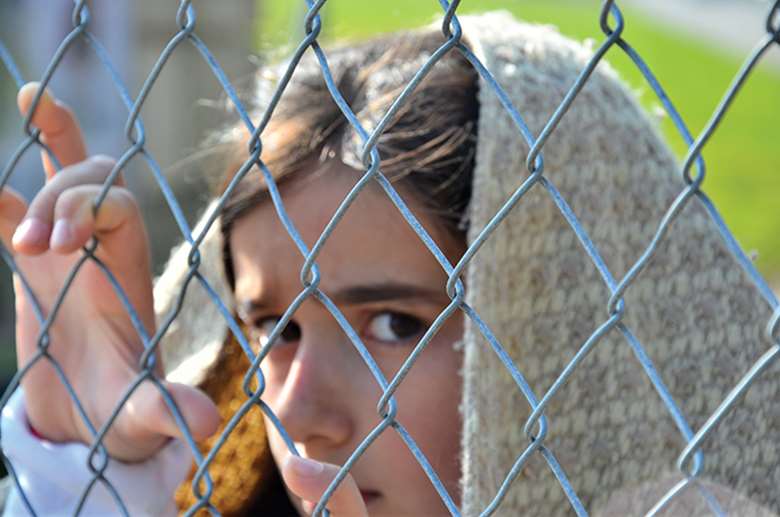Legal Update: Shared responsibility
Kamena Dorling
Thursday, June 29, 2017
Kamena Dorling, head of policy and programmes at Coram Children's Legal Centre, examines how local authorities are meeting the needs of unaccompanied asylum-seeking children.

In recent years, the number of unaccompanied children claiming asylum in the UK has risen significantly, with 3,175 children arriving in 2016 (accounting for just over 10 per cent of all asylum applications in 2016 compared with over 16 per cent in the "peak period" of 2008). These are children who have often experienced months or years of conflict, violence and trauma. They have a range of support needs, both emotional and practical, and can be extremely vulnerable.
Once in the UK, unaccompanied children become the responsibility of local authority children's services. All too often they are not provided with the accommodation or support they need - either due to lack of capacity and resources or a lack of understanding.
The National Transfer Scheme was identified as one of the solutions to ensure all unaccompanied children are adequately cared for. Through a voluntary interim transfer protocol, in place since 1 July 2016, the scheme aims to ensure that the responsibility for supporting these children does not fall disproportionately to a small number of local authorities situated as entry points into the UK (such as Kent and Hillingdon) and is more evenly shared across the country. The transfer protocol can be triggered when the number of unaccompanied asylum-seeking and refugee children under the age of 18 in a local authority area (the entry authority) reaches more than 0.07 per cent of the area's child population. Then the local authority can request that a child is transferred to another local authority.
This can be done directly with another local authority (the receiving authority) or through the Home Office's central administration team. If not otherwise agreed, the local authority receiving the child will be responsible for covering the costs of transporting the child from the local authority where they entered the UK.
The central administration team aims to maintain a database of unaccompanied asylum-seeking children based on the financial receipt information submitted by each authority and the forms associated with the transfer protocol.
Regardless of the possible merits of this scheme for the country's care system as a whole, at a time when children's services are under financial pressure, a number of local authorities have opted out of the scheme. Where transfers are attempted, delays are commonplace, leaving children in limbo, then reluctant to move because they have built relationships with their foster carers, entered the education system and made friends in their local area.
Coming up to its one-year anniversary, the protocol is due a review. It is essential that any review looks at the issue of delays and ensures that all moves only take place when they are in the child's best interests. Timescales and procedures within the scheme must be clearer and more consistently enforced.
In addition, well-meaning receiving local authorities outside of London and the South East need information and training on specific issues around caring for unaccompanied asylum-seeking children. They must be helped to provide effective care. This includes appropriate foster care or supported housing, access to legal advice and representation, education, healthcare and therapeutic support, and support to navigate the complexities of the immigration and asylum system.
To this end, the Migrant Children's Project at Coram Children's Legal Centre has brought out the fully updated fifth edition of Seeking Support: A Guide to the Rights and Entitlements of Separated Children. This comprehensive guide is free and provides general, practical advice to practitioners on how to support separated children and young people who are seeking asylum or facing other immigration issues.
On 1 November 2016, the then minister for families, in recognition of the increased numbers of refugee and unaccompanied children, committed to publishing a strategy setting out details on how these children should be safeguarded and their welfare promoted. The commitment was for the strategy to be published by 1 May 2017. While the general election has led to a delay, it is hoped it will soon be in place and authorities better assisted to protect and support all unaccompanied children.
For more information, visit www.childrenslegalcentre.com/promoting-childrens-rights/publications/seeking-support/
POINTERS FOR PRACTICE
- Asylum-seeking children are entitled to the same care and support from children's services under the Children Act as any other child
- The Interim National Transfer Protocol for Unaccompanied Asylum-Seeking Children outlines the procedures that must be followed when moving children from one area to another
- There are powers within the Immigration Act 2016 to direct local authorities to take responsibility from other local authorities for unaccompanied children seeking asylum
- There is no right of appeal if a child wishes to challenge a transfer, but the interim protocol states that "where children are settled and established in a local authority area, that local authority may make the decision that it is not in the best interests of the child for them to be moved". This could be the basis of a judicial review if it is considered this assessment has been improperly made.
Download this Legal Update as a PDF
Legal Update is produced in association with experts at Coram Children's Legal Centre www.childrenslegalcentre.com
Sign up to the monthly childRIGHT bulletin from CYP Now and Coram Children's Legal Centre, for the latest news and information about children, young people and the law: www.cypnow.co.uk/email-bulletins




